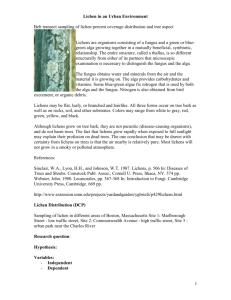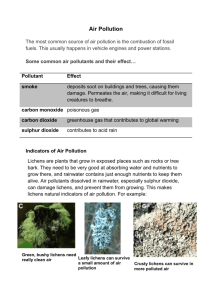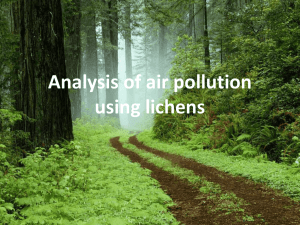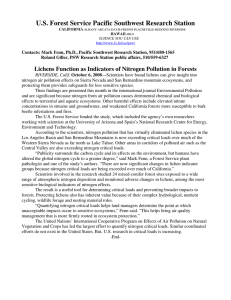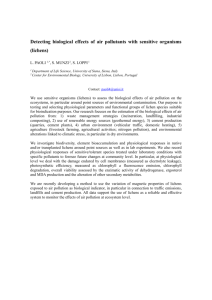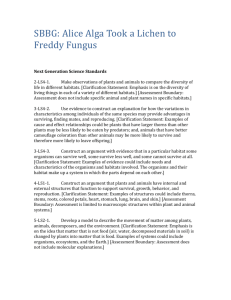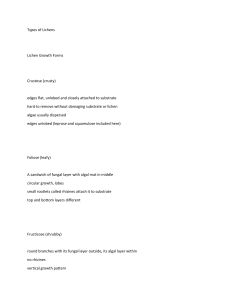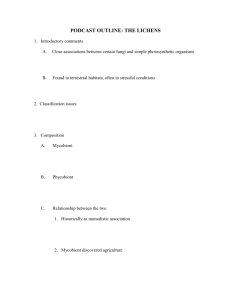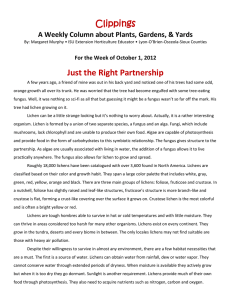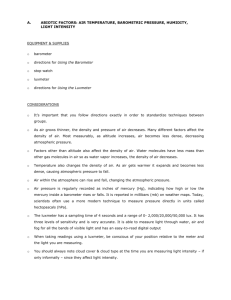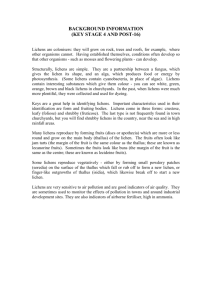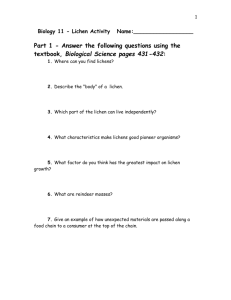OPAL Air survey - Field Studies Council
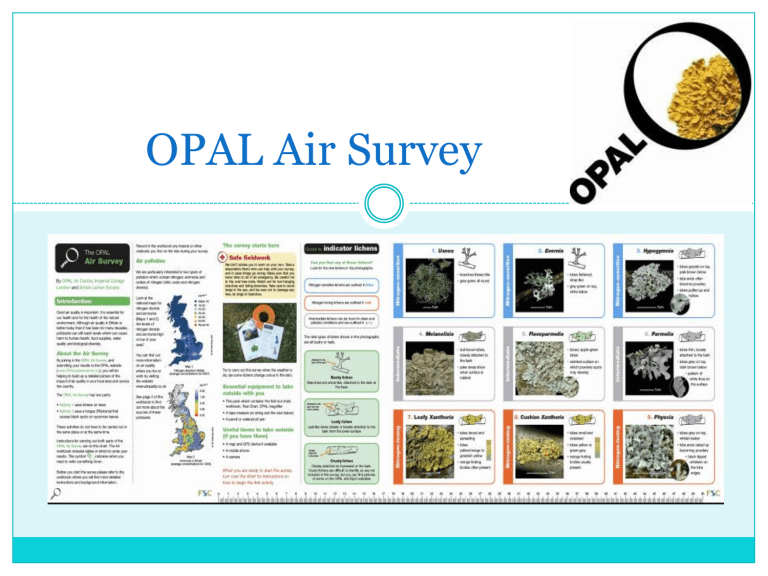
OPAL Air Survey
What is air?
Air is a mixture of gases
Nitrogen 78.09%, Oxygen 20.95%, 1% other
Why is it important?
Animals
Life on earth
Plants
Humans
Inhale :
Oxygen
(O2)
Humans
Exhale :
Carbon dioxide
(CO2)
Air pollution
Sources :
Vehicles Factories Houses Aerosols Farming
Effects:
Smog Acid rain Climate change
Nitrogen pollution
Sources: Car fumes, factories, fertilisers
Problem: Producing too much nitrogen
Effects: Acid rain, harming ecosystems, contributing to global warming
Where do you find the most nitrogen pollution?
Countryside Suburban City
Bio-indicators
Bio-indicators are living organisms that can be used to monitor the health of an environment or ecosystem.
Examples include:
Canaries used by coal miners
Invertebrates in streams e.g. Mayfly nymph
I have a flattened body
What is a lichen?
I have no roots
I have no stem
I have no leaves
Lichens – Two lives in one
A lichen is a partnership between a fungus and an alga.
The fungus (mycobiont) provides protection and the alga (photobiont) provides food.
Reproduce by fragmentation or through soredia
Symbiosis or controlled parasitism ?
By existing together they can live in places they couldn’t survive on their own.
Where do lichens grow?
• Anywhere – even in the most extreme environments
Hot
African deserts Rocky shores
Cold
Alpine peaks
Lichen biodiversity
• 18,000 identified worldwide 1,700 in Britain
Bushy Leafy Crusty
• Some lichens are more tolerant to pollution than others
I nitrogen!
I hate nitrogen!
Spot the lichen
1
2
3
Activity 1 – lichens on trees
Sample 4 deciduous trees – un shaded
1
Identify the tree species
Measure the girth of the tree
Identify all indicator lichens on one face of the trunk
Look at the twigs of the tree – record lichens
Record insects that you see
2 3 4
Tar spot
Fungus Rhytisma acerinum
Sensitive to pollution
Growth is reduced by sulphur dioxide and oxides of nitrogen
The more tar spot the less polluted the air
Count as
2 spots
Make your results count
Website : www.OPALexplorenature.org
Results can also be posted in for free!
